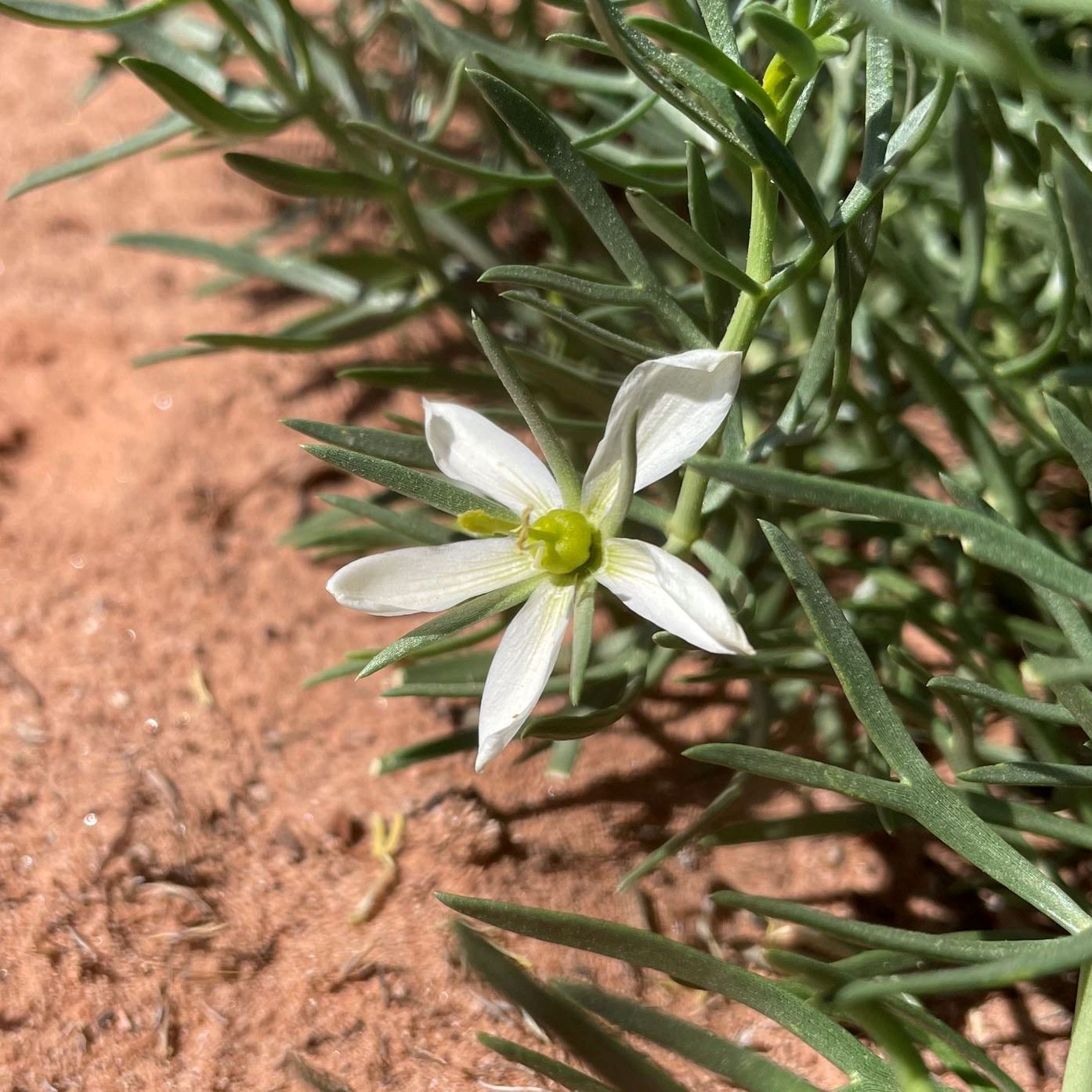Some information may be outdated.
While the Grand County Weed Department is serious about containing and eradicating noxious and invasive plants in the area, the department’s staff is far more focused on helping residents identify and remove strange and unwanted plants rather than penalizing residents.
The department’s director, Elizabeth “Izzi” Weimholt, says that she thinks the job is more like being a plant detective, rather than a weed cop.
“I love getting calls that are from people saying, ‘I have this crazy grass, I don’t know what it is,’” Weimholt said. “I’m always like: send me a picture, I’m coming out!”
The department’s focus is limited to species prioritized on a statewide list of noxious weeds, but staff also try to meet the community’s needs for information and support. The options for support are different depending on which plant is growing and what its possible impact could be.
“We’re a small department and we do have the rest of Grant County to look after,” Weimholt said. “But we do care a lot about the people that are here in town and we want to do what we can.”
One of the biggest issues that the department (and anyone who enjoys bare feet) faces is puncturevine, also known as the goathead. The stems of the plant grow to form a dense mat, which can smother other plants. Its small, five-petaled flowers are bright yellow, but once the flowers die away, the sharp, spiked seedpod—shaped similarly to the head of a goat—forms, strong enough to puncture bike tires. Year after year, the Weed Department focuses on trying to control puncturevine in public parks, sidewalks, and trailheads.
“We are a small department, so we can’t go onto private property and remove puncturevine,” Weimholt said, “but we do have the resources to go to someone’s property and remove ravenna grass or giant reed.”
Ravenna grass and giant reed are tall grasses that were often planted as decorative or ornamental residential plants in the past but are now recognized by the state as non-native invasive species that crowd out native plants.
“One of the reasons we have ravenna grass on our list of noxious species is that they are getting into the waterways,” Weimholt said. “We are finding it in every canyon with perennial water, like Grandstaff and Hunter Canyon. We’d like to stop that spread.”
The Grand County Weed Department can go to people’s private property and remove the plants, and even provide a voucher to the property owner to replace the invasive species with a native plant.
Myrtle spurge is another invasive species that the department hopes to raise awareness of, despite its popularity in local residential yards.


“Although it’s a beautiful succulent, the sap inside is pretty toxic and can cause skin irritation and vision loss if it gets into the eyes,” Weimholt said, adding that its toxicity is of particular concern to children. The department is always willing to help homeowners remove it.
While it’s not a concern in people’s yards, Weimholt said that the department’s number one priority is eradicating a plant called African rue.
“It’s brand new to the state and we have the only known infestation in Utah right here in Grand County,” she said. “It’s on the absolute highest class for noxious weeds.”
The department’s job is not limited to the town of Moab but covers all of Grand County, which has a wide variety of plants and invasive species due to its diverse environment.
“Honestly, this area has got it all: we’ve got mountains, the Book Cliffs, riparian areas, lakes, and desert,” Weimholt said. “A huge part of our job is outside of town looking at all these crazy little plants in the far corners of Grand County. I mean, I could go on forever about seeing just the weirdest things out there.”
Weimholt said African rue was previously found in New Mexico and Arizona before someone noticed a strange-looking plant growing by an old oil pad in a rural part of Grand County.
“They noticed a plant that just looked odd and decided to let someone know,” she said. “It was very cool of them to do, and something that I really encourage other people to do. If you see an odd-looking plant, call it in to me!”
The Grand County Weed Department can be reached at eweimholt@grandcountyutah.net or by calling 435-259-1369.
Appreciate the coverage? Help keep local news alive.
Chip in to support the Moab Sun News.





